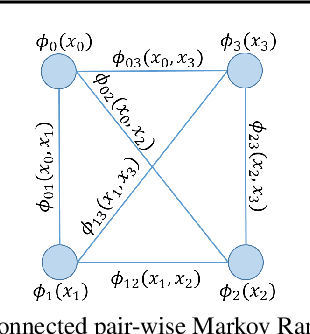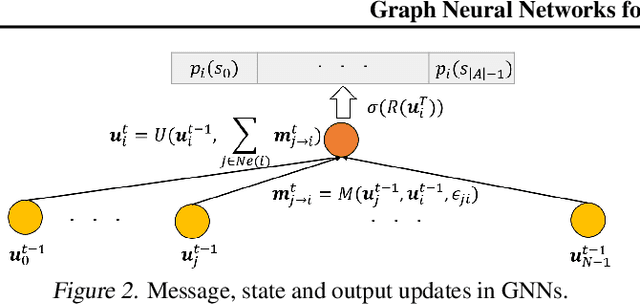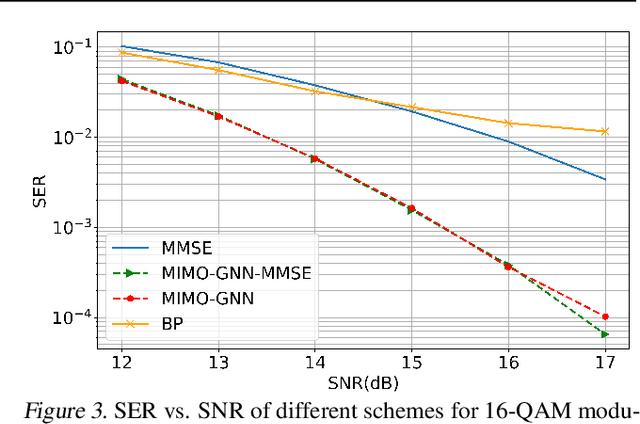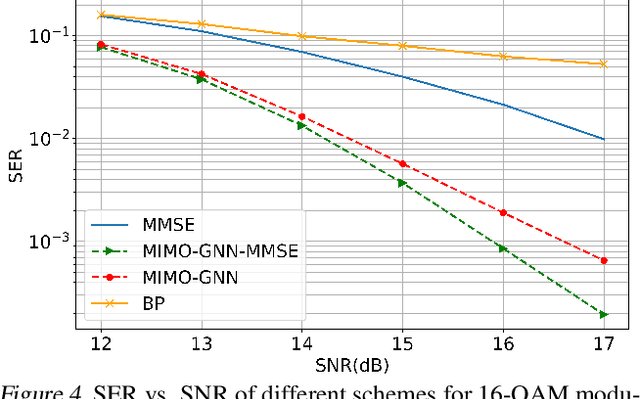Graph Neural Networks for Massive MIMO Detection
Paper and Code
Jul 11, 2020



In this paper, we innovately use graph neural networks (GNNs) to learn a message-passing solution for the inference task of massive multiple multiple-input multiple-output (MIMO) detection in wireless communication. We adopt a graphical model based on the Markov random field (MRF) where belief propagation (BP) yields poor results when it assumes a uniform prior over the transmitted symbols. Numerical simulations show that, under the uniform prior assumption, our GNN-based MIMO detection solution outperforms the minimum mean-squared error (MMSE) baseline detector, in contrast to BP. Furthermore, experiments demonstrate that the performance of the algorithm slightly improves by incorporating MMSE information into the prior.
* ICML 2020 Workshop on Graph Representation Learning and Beyond (GRL+)
 Add to Chrome
Add to Chrome Add to Firefox
Add to Firefox Add to Edge
Add to Edge